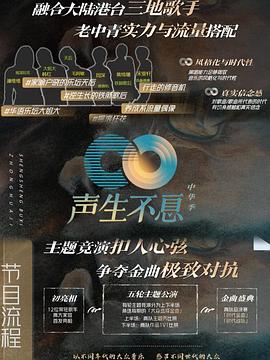
04-10.危险证据2024
04-10.落花洞新娘
04-10. 4月9日 23-24赛季意甲第31轮 乌迪内斯VS国际米兰
04-10. 4月9日 23-24赛季沙超杯半决赛 吉达联合VS麦加统一
04-10. 4月9日 23-24赛季沙超杯半决赛 利雅得新月VS利雅得胜利
04-10.好友好有爱第二季
04-10.逆天奇案2国语
04-10.逆天奇案2粤语
04-10.T教授第三季
04-10.巴克斯特一家第一季
04-10.一见不钟情2024
04-10.乘风踏浪
04-10.今天的她们
04-10.婚姻战
04-10.夜限照相馆
04-10.坡道上的红屋顶
04-10.半熟恋人第三季
04-10.爱情继续
04-10.花甲少年趣旅行第四季
04-10.爱在热气沸腾中
04-10.云中居三子
04-10.格里姆斯堡
04-10.声生不息·家年华
04-10.哈啰你有事吗
月播视频排行榜
推荐视频排行榜
- 4月8日 23-24赛季NBA常规赛 76人VS马刺
- 死神少爷与黑女仆第三季
- 4月7日 23-24赛季NBA常规赛 76人VS灰熊
- 喂!蜻蜓
- 关于我们把节目全部丢给声优那件事
- 极速星舞
- 偶像大师闪耀色彩
- Hope On The Street
- 4月5日 23-24赛季NBA常规赛 76人VS热火
- 怪物樵夫
- 大室家亲爱的姐妹们
- 猫妖奇谭
- 各怀鬼胎2022
- 朱弦玉磐
- 眼泪制造者
- 4月4日 23-24赛季NBA常规赛 开拓者VS黄蜂
- 4月3日 23-24赛季NBA常规赛 骑士VS爵士
- 战利品第二季
- 4月1日 23-24赛季意甲第30轮 卡利亚里VS维罗纳
- 齐心协力:三冠王
- 爱在天摇地动时
- 4月1日 23-24赛季NBA常规赛 爵士VS国王
- 4月1日 23-24赛季NBA常规赛 湖人VS篮网
- 3月30日 23-24赛季NBA常规赛 公牛VS篮网
- 3月30日 23-24赛季NBA常规赛 开拓者VS热火
- 3月30日 23-24赛季NBA常规赛 活塞VS奇才
- 美国之锈第二季
- 今天的她们
- 美丽足球魂
- 我们是幸运儿